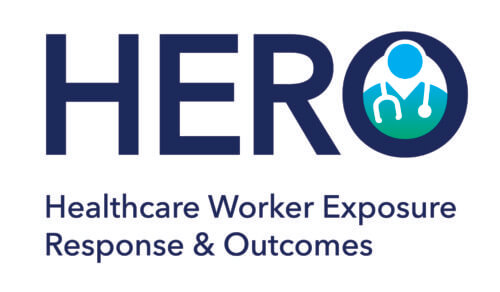The Healthcare Worker Exposure Response & Outcomes (HERO) Registry, which unites healthcare workers to better understand and stop COVID-19, has enrolled over 22,000 participants. HERO is funded by the Patient-Centered Outcomes Research Institute (PCORI), coordinated by the Duke Clinical Research Institute (DCRI), and enabled by PCORnet®, the National Patient-Centered Clinical Research Network. Its goal is to use the experiences of frontline health workers to develop fast knowledge to keep these workers and their communities safe and healthy in the COVID-19 pandemic.
"We are thrilled to see the HERO Registry continue to grow, a clear indication that frontline health workers across the nation are united in their commitment to fight COVID-19, both in and out of the hospital setting," said Emily O’Brien, principal investigator for the HERO Registry. "Their experiences are tremendously valuable in helping the research community better understand the physical and mental toll of this virus, which will improve COVID-19 care across the board."
The partnership with PCORnet Network Partners has been central to the registry’s success. Network Partners have ties to a well-established community of healthcare systems with experience collaborating on large clinical studies engaging patients and clinicians alike. This community’s support ensures that any interested healthcare or emergency worker can easily join the registry.
Targeting the next phase of COVID-19: long-term vaccine safety
An advantage of real-world registries is their ability to evolve naturally as the pandemic progresses. For example, now that the U.S. Food and Drug Administration (FDA) has issued Emergency Use Authorization of COVID-19 vaccines, the HERO Registry is serving as a key tool in understanding the real-world experiences of healthcare workers taking vaccines.
In December, Pfizer funded the HERO-Together study, which is using the HERO Registry to follow healthcare workers for two years to assess their experiences after receiving one of the COVID-19 vaccines such as the Pfizer-BioNTech COVID-19 vaccine. Like previous studies that leveraged the HERO Registry, HERO-TOGETHER is making participation easy, allowing vaccinated health workers to quickly and securely provide information about their health and any unexpected medical care they have received.
What’s next for the HERO Registry?
The HERO Registry will continue to evolve in the coming years, and its community of engaged healthcare workers are certain to help answer more important questions about the short- and long-term impacts of COVID-19 within this essential community.

 The Healthcare Worker Exposure Response & Outcomes (HERO) Registry launched today, marking the first major milestone in a
The Healthcare Worker Exposure Response & Outcomes (HERO) Registry launched today, marking the first major milestone in a